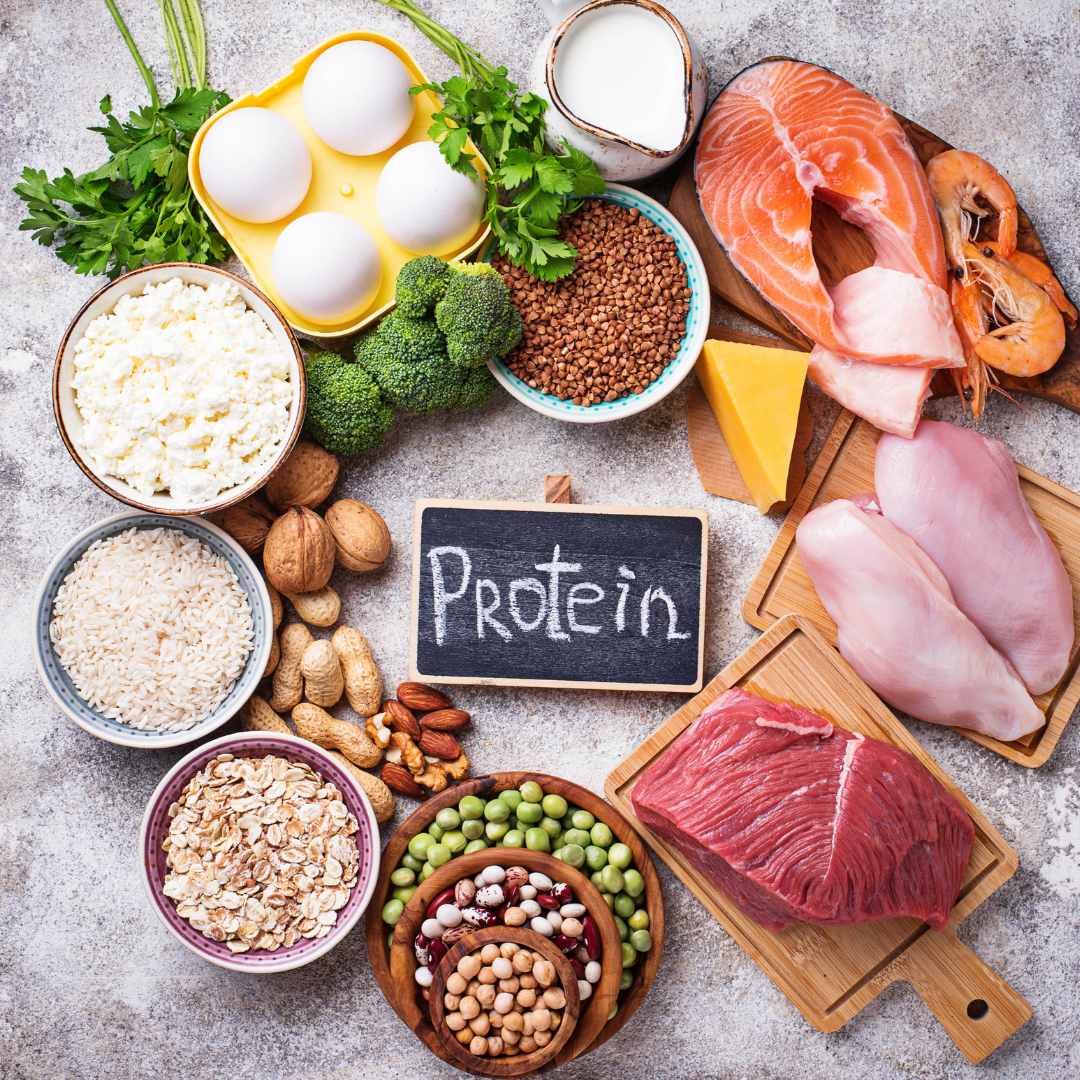Protein
Having discussed carbohydrates in my last post, I now move on to proteins.
Proteins are important for so many processes in the body like cell growth and repair, building muscle mass, hormone production, building neurotransmitters, a healthy immune system and others. They are needed for healthy skin, hair, muscles, nails and. The other two macronutrients are also needed for these processes, but fats and carbohydrates can be stored in the body, whereas protein cannot be stored. This means that we need to get protein from food sources every single day with, ideally, every single meal!
Proteins are chains of approximately 20 amino acids, some of which are essential and others that are non-essential. Proteins are broken down into these individual amino acids during digestion. Essential means that we need to obtain these from our diet as the human body cannot make them. Given that proteins are vital for so many body functions, we need to ensure that we eat a wide variety of proteins that provide us with these 9 essential amino acids.
To ensure that all these vital bodily functions work well, we should eat a palm-size portion of protein at every meal.
Good sources are:
- Complete proteins (containing all essential amino acids):
- Animal sources like beef, lamb, chicken, seafood, eggs and dairy products (if possible, ensure that they come from a trusted source and are organic, or at least sustainably produced)
- Vegetarian sources: soy, quinoa, amaranth, buckwheat, hemp seeds, and dairy products
- Incomplete proteins (don’t contain all essential amino acids)
- Nuts & seeds (in particular peanuts, almonds, pumpkin seeds, sunflower seeds and hemp seeds)
- Legumes (especially soy beans (think tofu/tempeh), lentils, kidney beans, black beans and split peas)
- Grains (quinoa, buckwheat, millet, amaranth and oats)
Incomplete proteins can be paired with each other so that together they make a complete protein, for example: soups that include legumes and grains, salads with legumes and nuts/seeds, tofu/tempeh with brown rice or brown rice and beans. However, they don’t necessarily need to be combined in one meal, just ensure that in one day you eat a wide variety of protein sources so that you cover all essential amino acids.
A good quality protein powder, whether it’s made from whey or a plant source, can help with achieving your protein goals. Be aware though that many contain some nasty fillers, additives, gums/thickeners, vegetables oils and artificial sweeteners! Read the ingredients list carefully to avoid those.
Recommended daily intake
The recommended daily allowance (RDA) of protein is 0.8 g per kg of body weight, but this depends on your activity level and life stage. It is best to discuss your individual protein needs with a practitioner, so go ahead and book a complementary discovery call here on my website.

